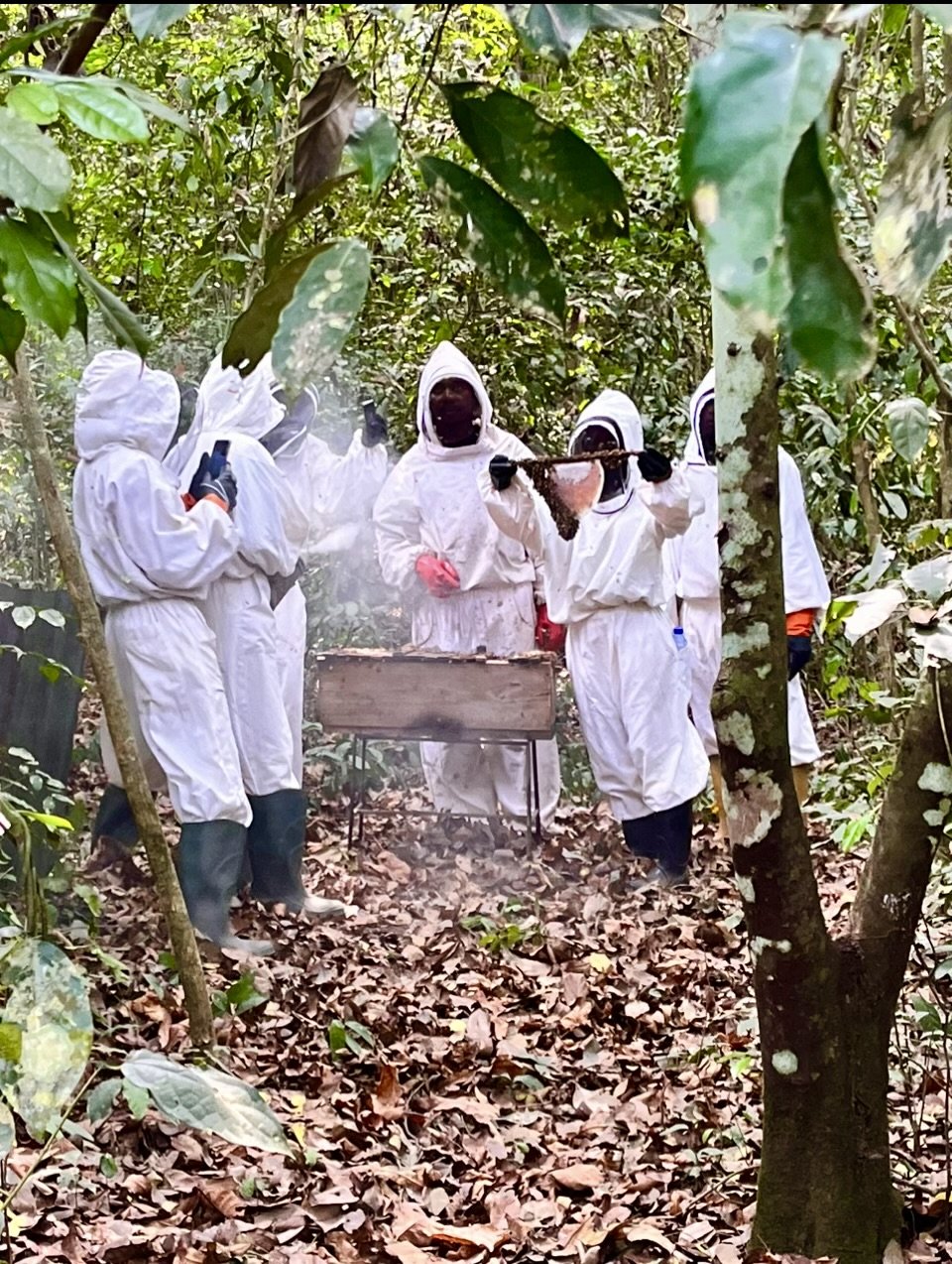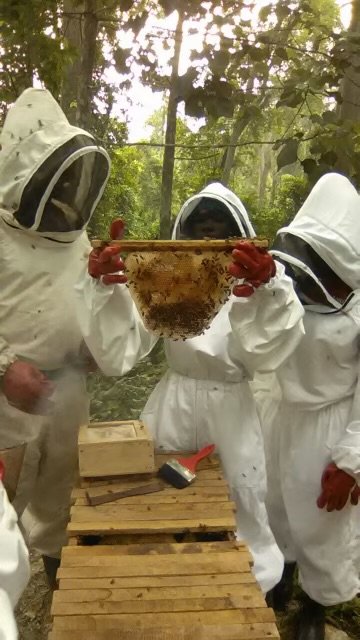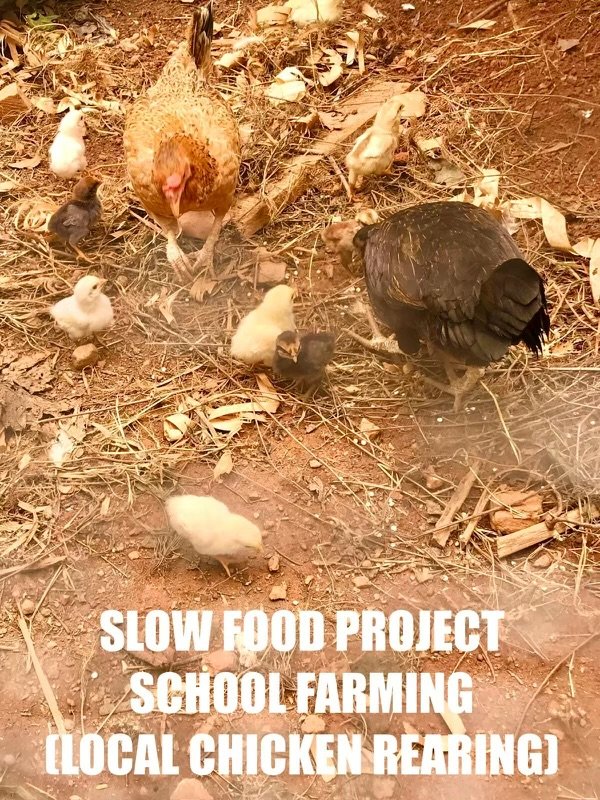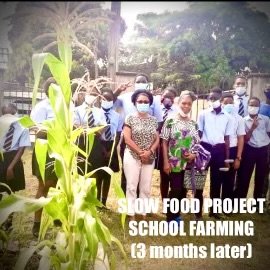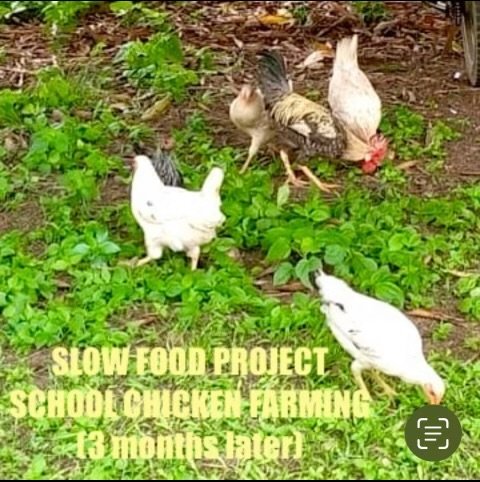Bees Abroad UK introduced MAMIE Foundation to The Slow Food International Community Executive Committee who officially recognised the MAMIE Emerald Forest Beekeeping Community as an integral part of the Slow Food network in January 2020.
The MAMIE Foundation was granted the use of the Slow Food Community logo, in line with the Slow Food International Statute, the Code of Use for Slow Food Trademarks and the Fundraising Guidelines, for all MAMIE’s activities aimed at fulfilling the international and local commitments of the Slow Food Community.
MAMIE Foundation is listed on the Slow Food International website at the following link:
https://www.slowfood.com/nazioni-condotte/nigeria/.
Thereafter MAMIE EMERALD FOREST SLOW FOODS CONVIVA started three activities
Activities:
1. Urban school farm projects for children aged 3 to 17 years to learn how to propagate and nurture plants from:
a) Vegetable seeds such as Maize, Beans, Efo greens, Okro
b) Flower seeds such as Sunflower
c) Cuttings such as hibiscus, crotons, ixora, cordyline
d) Seedlings such as mango, guava, pawpaw, avocado
Recycled Plastic cups and sachets were used to raise seedlings before replanting in the garden beds.
Organic manure was prepared from kitchen waste and cured poultry droppings.
Each class has regular sessions weekly during class sessions.
Equipment such as hand Trowels, spades, buckets, bowls, garden gloves, boots and watering cans were provided by the school.
Children were encouraged to write essays and draw pictures on their progress.
Ongoing harvests are cooked and shared by the children.
2. An urban community park was established for leisure and educational purposes in May to September 2020. The park was populated with a variety of ornamental, medicinal and indigenous flora with labels indicating the names and uses of the plants. The park has become popular with the local community and football club.
3. Urban kitchen gardens growing Maize, Beans, greens, Okro and rearing local free-range chickens.
Natural ways to combat garden pests with mud and regular weeding were taught and successfully applied.
These gardens have continued to provide seasonal harvests for the neighbourhood.
4. Rural forest farms for larger cooperative communities to produce pineapples, bananas, citrus, mangoes, cassava, yams, corn, vegetables, and rearing of chickens, guinea fowls, catfish and tilapia fish.
This project is taking place within the 300 acre Emerald Forest Reserve.
This has supplemented the availability of food supplies with organic forest produce during the recent inflation causing a crisis of food affordability in Nigeria.


